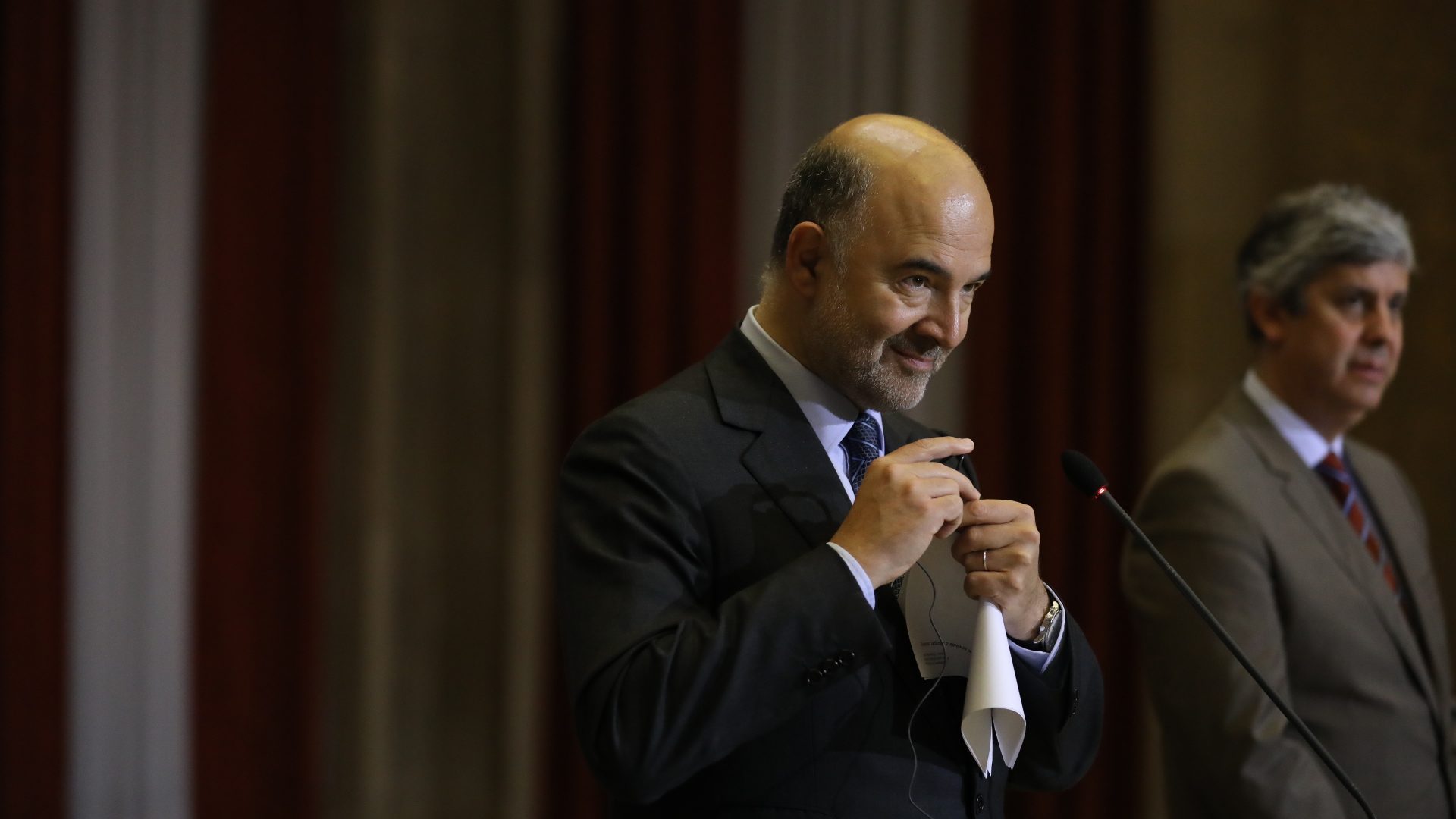Why did GDP grow 2.8%? Same percentage, different explanations
GDP grew because of what the government did. Or because of what it didn't do. Or even because of what it stopped doing... Discover all the different explanations for this quick economic growth.

Yesterday, Statistics Portugal (INE) disclosed in their Quarterly National Accounts Flash Estimate that GDP grew 2.8%:
"The acceleration of GDP was due to the increase of the contribution of net external demand, which shifted from negative to positive, reflecting the more pronounced acceleration in volume of Exports of Goods and Services relatively to the acceleration in Imports of Goods and Services. Domestic demand contribution remained positive, although lower than in the previous quarter, with private consumption decelerating while investment accelerated.”
Nonetheless, there are several answers for the same question: why is it that in the first quarter of 2017, economic rhythm accelerated to 2.8%? ECO will tell you all the reasons which justify this growth.
Mário Centeno: because growth is sustainable
“The data disclosed by INE indicate that the acceleration of growth is fundamentally linked to a larger strength in exports and investment, confirming the sustainable and balanced nature of the current growth pattern in the Portuguese economy“, stated the Government, in a note sent by Mário Centeno’s press office. The same is to say that the Finance ministry assures this acceleration demonstrates that the growth pattern is sustainable and balanced.
António Costa: because of the Government’s action
It is important to “continue growing in employment, increasing investment, increasing exports, continue increasing consumption based on income and not on indebtedness”, stated the Portuguese prime minister. António Costa chose to highlight the Government’s action in interpreting the results: “Last year, we stabilized gross debt growth, we reduced net debt”.
Opposition: because of the previous government’s action
“We are pleased with the GDP recovery in this quarter, which happened because of the reforms made by the previous government, and also because of a more favorable environment in the EU and internationally”, stated the social-democrat Inês Domingos to the Portuguese news agency Lusa. The deputy from the Social Democratic Party (PSD) took the chance to state the results reflect “the efforts made by companies and families which boosted the economy, in spite of the Government’s inertia and reform inversion”.
Left: because of the end of the previous government’s action
These “data [are] inseparable from the inversion of the course imposed by the PSD/CDS government and also the inversion of the measures which, although limited, restored rights and income”, the Portuguese Communist Party (PCP) states in a note sent to the press.
The Left Block deputy Mariana Mortágua also highlighted the importance of the end of the previous Executive’s policies: “The political project from PSD and CDS [Portuguese Social Democratic Party and Portuguese Democratic and Social Center Party] has been exhausted, it is proven it no longer works”.
Economists: it had little to do with any Government
“The explanation is much more related to external factors than in this or the previous government’s policies. I would highly devalue government action”, states Filipe Garcia, economist in the Financial Markets Institute (IMF — Instituto de Mercados Financeiros) to ECO.
"I would highly devalue government action. ”
The economist considers it is “normal for political parties to claim the credit of this GDP growth for themselves”. Nonetheless, he highlights that Portugal’s economy is quite opened to the exterior, which means that it is very penalized when the circumstances deteriorate, but it benefits from a favorable context, as well; Garcia highlights the impact of ECB’s monetary policy, which decreases the country risk and fuel prices, as well as the euro.




